McG. The very name conjures up images and sounds of films like Charlie’s Angels, Charlie’s Angels: Full Throttle, Terminator Salvation, or 3 Days to Kill. But when it comes to director/producer McG, he is so much more than just high octane action with his patented pulsating soundtracks. McG has always been cutting edge with an ear to the ground and ahead of the curve with the public zeitgeist As a record producer, he brought us Sugar Ray. Then he jumped into directing, delivering a plethora of acclaimed and award-winning music videos before the world of television commercials and advertising called to him. Naturally, the next move would be producing and directing for television and film and once again, McG didn’t disappoint. As a producer, McG brought us groundbreaking television shows like The OC, Nikita,” and Supernatural”, the latter of which is now in its 13th season, and continues to do so with Lethal Weapon, Shadowhunters: The Mortal Instruments, and the highly anticipated True Lies. But it’s his directing that sets a style and tone for which he is most recognized. And now as producer and director of THE BABYSITTER, McG ups the ante on his already outstanding body of work, bringing it all together as he melds genres, blends story tone and emotion with heart, teen angst and the dramatic aspects we saw from him in We Are Marshall and, of course, great action and a soundtrack to die for.
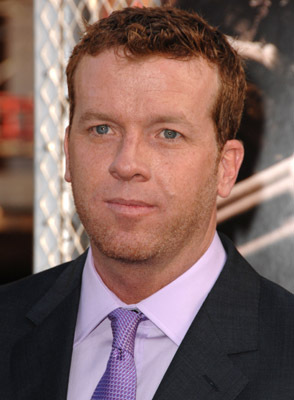
A non-stop adrenaline rush of humor and action with pulsating multi-generational music tracks that “feel” the ebb and flow of the story and visuals, what sets THE BABYSITTER apart is the heart that McG brings to the table thanks to Brian Duffield’s script. At first blush, one gets the sense that THE BABYSITTER is a 21st Century John Hughes movie but with a McG spin. Thanks to parents who still view him as a “baby”, teenaged Cole is the only one of his friends forced to have a babysitter when his parents go out. But making the embarrassment palatable is that Cole’s babysitter is Bee, a hip, trendy, popular collegiate who treats Cole like he’s something special, not to mention they are both obsessive cinephiles. Harkening back a few decades to the sweet days of Beaver Cleaver and Opie Taylor, Cole, of course, has a crush on Bee. But he has to wonder – what does Bee do at night once he goes to sleep. Spying from the staircase leading to his bedroom, Cole gets his answer as he sees Bee and a group of friends playing “Truth or Dare Spin-the-Bottle.” Fun, right? Nothing to see here. But then the tables turn and suddenly Bee plunges two daggers positioned like horns into the head of one of her friends. WTF!! And from there, the film just explodes, literally and figuratively. What a ride!

During this exclusive interview with McG, his excitement and enthusiasm for THE BABYSITTER is almost uncontainable, and palpable from the get-go, particularly as we start the conversation with a request for a sequel following my assessment of the film. “I wish I could just bottle up everything you just said and put it out in the universe because that’s really what we intended to do with this one. What an absolute delight to hear you recap it that way because truly that’s the intention. The music and the characters. It’s supposed to be funny and thrilling, but oddly, at the end of the day, it’s all about having a big heart. You strangely root for both the Cole and the Bee characters. It’s a bittersweet symphony, seeing this guy go from a kid to an adult over the course of a crazy night.”

Once the script found its way to McG, “I just immediately responded to it. I’ve got this thing where if I feel like I’m watching movies when I read the script, I trust that internal switch, and that’s the way I felt when I read this script. Brian’s got such an original voice, and I’m a child of Quentin Tarantino, so this new kid shows some of those sensibilities but does it in his own way [so] it feels decidedly 2018. I just thought it was a super cool opportunity and felt like a big challenge to mix all of those different tones you speak of into one film and have them not collide with one another, but hopefully support one another, and be original in the final expression. At least that was the goal. Hopefully, the value of the film is it’s original. You can’t just put it in a box and say, ‘Oh, it’s just like this!’ Or, ‘It’s just like that!’, but rather, it’s a lot like a great many things, and therefore, original in the end.”

Intending to catch the audience off-guard with a rather shocking and surprising opening and initial blood-letting, McG gives credit to screenwriter Duffield. “The moment I read it, that’s exactly what my intention was – to take everything I loved about John Hughes and all these great films — a little bit of Risky Business, little bit of Fast Times at Ridgemont High and the big spin there, and have that first act that, hopefully, is just subversive enough to make you feel like, ‘I think something’s about to change here.’ And then it changes big time.”
A key component to a McG film, particularly when action is involved, is an almost geometric choreography akin to that of Busby Berkeley, a filmmaker who has proved to be an influence for McG over the years. With that type of visual specificity, the watchword becomes “preparation”. “I’m a big believer in a lot of prep and a lot of vision into what goes into any film. In most of my films, I have a big long one-er. There’s one with Reese [Witherspoon] dancing in the kitchen in This Means War, there’s the Terminator shot where [Christian] Bale crawls out of a hole and gets in a helicopter and it crashes, and he crawls out of a crashed helicopter and fights the Terminator all in one shot. In Charlie’s Angels, there’s Cameron [Diaz] coming down the stairs for a big dance and everything. I like to put a lot of thought and effort into what the camera is doing, in the interest of conveying the story with greater syntax. And then, of course, there’s always discovery on the day, where you need to be nimble enough, or should there be something better than what you originally intended, I think you need to be flexible enough to capture that. But it never hurts to have a good plan.”
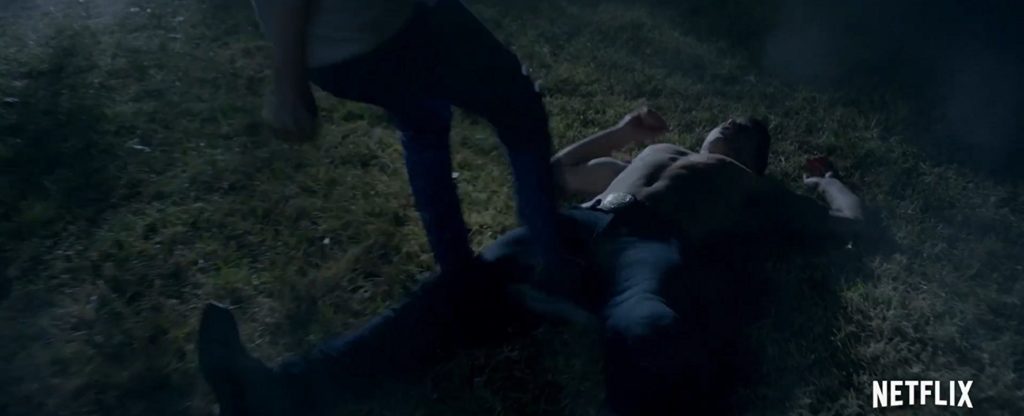
Speaking of a plan, an important part of McG’s plan with THE BABYSTITTER is his cinematographer Shane Hurlbut along with the Red Dragon Weapon camera. “I really like that sensor, and Shane’s obviously a leader of that technology in everything he does with Hurlbut Visuals. And I like the Alexxa also. . . Shane and I always do a long talk [before shooting]. He’s such a big, bombastic personality, which I like, because I come from camera. So I know how I want to shoot it, and I love it when Shane pushes back and challenges me on absolutely everything. And then we conclude, as friends and partners, as to how we’re going to do it, and it’s really fun to work with him.”
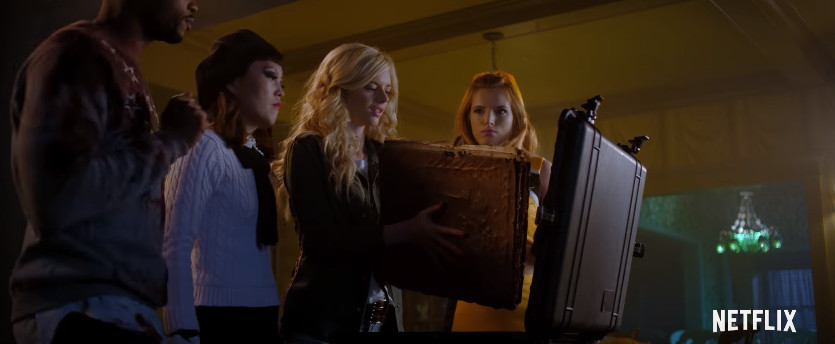
The magic of the collaboration between McG and Hurlbut is more than evident in THE BABYSITTER, their third outing together after We Are Marshall and Terminator: Salvation. Visuals are eye-popping. There’s constant camera movement, some handheld work, dutching of angles, some very unusual framing of some ECUs that are really enticing and to a degree, cutting edge, drawing the audience in ever deeper adding another spin to the story. They play with lighting so that as the film progresses the lighting changes. We start seeing deeper blue tones, but then they pop it with a single light in the house here, or a light there, or just a moonbeam coming through a window. The entire visual design creates another incredible layer of storytelling. Trying to “find a different point of entry with each film, just give them a little topspin, and give it an extra piece of originality . . .the John Hughes quality of the first third of the picture and then the descent into darkness” is the calculated intent of the film’s construct. “It’s the ultimate rise of the hero out of the metaphorical cave, and back into the light. We definitely built that into the negative, so to speak, in regard to how we lit it, the filtration, everything we were doing along the way. And that was the function of the conversation with Shane, yet again.”
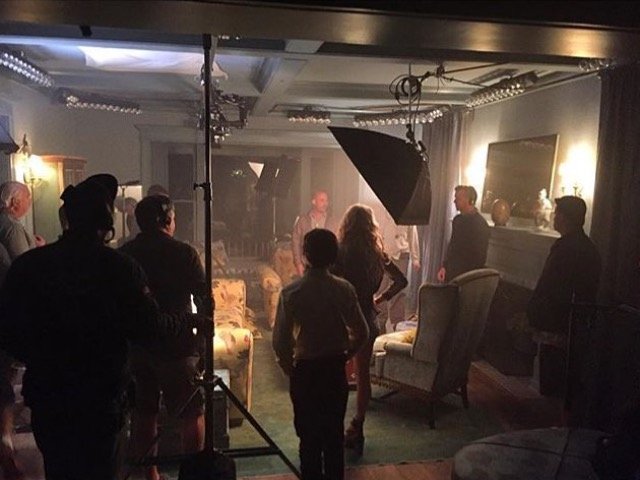
Of course, whenever one works with or talks about Shane Hurlbut, the conversation must turn to Hurlbut’s never-ending technical innovations for shooting. Working with Scott Waugh and Mike “Mouse” McCoy on Act of Valor, Hurlbut designed a protective camera housing to take a bullet being shot directly into the lens, and on Need for Speed, he developed new rigging used in the multiplicity of car chases. Calling him “a mad professor”, with THE BABYSITTER, Hurlbut was again in top form as he “invented this gimbal that could approximate the ‘spin the bottle’ point of view of a camera, which I’ve never seen done. He had the Red mounted to this strange … it wasn’t quite a drill, but it had the qualities of the drill by way of a winch that I’d never seen done before. He’s doing things with the MoVI, which is basically the next generation of a steadicam idea — the camera stays very true, but you can go to a very high-angle, and then put the camera essentially on the deck, and then run with it, and do things you could never do with a steady camera. So he’s always at the leading edge of that. He’s got remote-controlled cars to chase things around! He’s doing the most progressive things with drone photography. And then on top of that, what he does with the light! I mean, the guy started as Herb Ritts’ gaffer so he comes from lighting. Here’s the thing. When you work with Shane Hurlbut, that guy’s going to try as hard as he can, and that’s cool. You always want to be on a film set with everybody who’s trying as hard as they can. There’s a lot of energy coming out of the set when we’re both doing it because we’re very passionate about it. And I like that ‘can-do’ approach to life as well as filmmaking, and Shane really has that. He’s not fussy, he’s not a prima donna. He’s the kind of guy that’ll pick up the camera cases and just stomp on up the mountain to get it done. He’s just so passionate about what he does. He’s there for all the right reasons.”
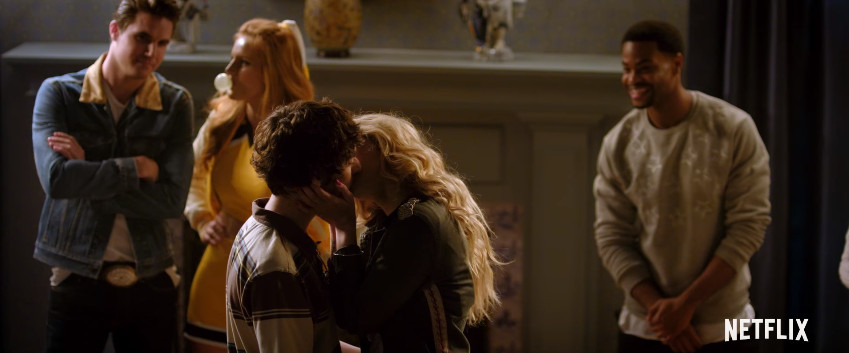
Another part of McG’s “can-do” team on THE BABYSITTER is editor Peter Gvozdas who also handles editing duties on the McG-produced series Shadowhunters: The Moral Instruments. Keeping the audience on the edge of their seats, Gvozdas and McG meet the challenge of finding that “sweet spot” of balance between action and the underlying story between Bee and Cole in THE BABYSITTER. As McG notes, that balance “comes to reveal itself in time”, something that he loves about the post-production process. “It’s wild because, without reservation, you can just do anything in post. You’ve got to find that pace, you’ve got to find its humor. Everything is frame specific to find out where the joke is, or where you lost it, and then to bring it back in; and where the music comes in, where the music comes out, and the degree to which you have instrumentation, and then say, ‘Okay, let’s have a big needle drop, like the Queen song We Are the Champions. Those are all the fun challenging and tricky things that require a great deal of trial and error in post-production to hopefully get right.”
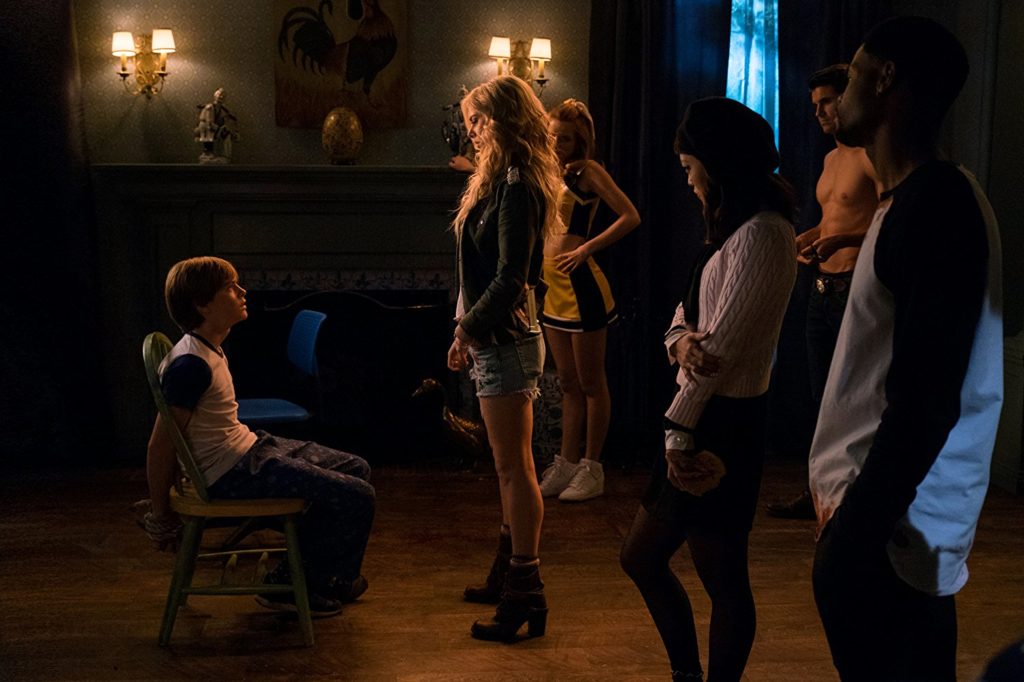
From score to needle drops, music has become an important storytelling tool in a McG film and THE BABYSITTER is no different. But with standout, recognizable tracks, comes a hurdle that derails many directors from their ultimate vision. Not so with McG. “I grew up in this house filled with noise, beautiful noise. My older brother was always singing Led Zeppelin, my sister was listening to disco, my dad was listening to jazz, and always movies, movies, movies. So that was my experience, and I found that very comforting, so I like all kinds of music, and I always want to utilize that experience. That Foghat song is the old blues standard, I Just Want to Make Love to You, and is truly out of my sister and I dancing around the living room and pantomiming what I think that live concert would look like, to go see Foghat. . . I really wanted We Are the Champions’. It would’ve broken the bank to pay with that cue and what it usually requires for clearance. So I write a letter to the three remaining members of Queen – Brian May, John Deacon, and Roger Taylor. Of course, Freddie Mercury is no longer with us. And I go, ‘Hey guys’ – and I don’t know them! But I’m a huge, huge fan — huge fan! I say, ‘Your work has meant so much to me in my life, and what I do in film and television, and making records, and everything I do. And I’ve just made this move that has a lot to do with a kid having a hard time, and overcoming all that, and staying true to himself. And to me, that describes the life and legacy of Freddie Mercury, and it would mean so much to me if we could figure out a way to use We Are the Champions in the film.’ And they gave it to us for next to nothing. It was just so nice that there’s humanity like that out in the world. And the Beastie Boys do the same thing. They don’t care how much money you throw at them. They’ve got to like what you’re doing with music. Radiohead does the same thing. It was just so nice to have Queen go, ‘Yeah, that’s what we’re all about.’ And they helped us, and it was just so cool, and I think the song works real great, and it’s just kind of thing where you go, ‘Wow. Sometimes art for art’s sake’.”
McG’s excitement ratchets up even further as he talks about his love and admiration for Queen. “I had every single piece of Queen vinyl ever. I have all the videotapes at their concerts. And I’m in awe of what they did creatively. They come from a time when they used to release two records in one calendar year with songwriting of the magnitude that was extraordinary. So I have maximum respect for what they put together as artists. It’s easy to speak from the heart in regard to how I feel about their music.”
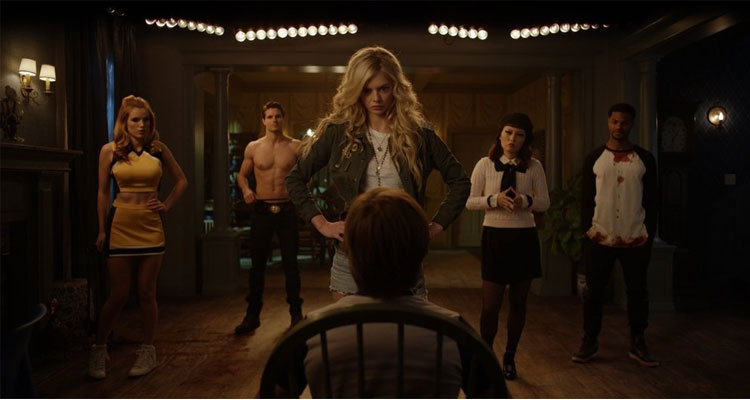
As technically proficient with talent as THE BABYSITTER is behind the camera, it is equally so with the talent in front of the camera starting with Judah Lewis who plays the protagonist Cole and Samara Weaving who stars as babysitter Bee. According to McG, who always tries to find amazing new discoveries of talent. “We scoured the Earth, literally scoured the Earth looking for Cole and looking for Bee. I read every young female actor under 30 I could possibly think of. But I got to tell you, after going through everybody, there was a self-tape from Australia of Samara [Weaving] — a self-tape. It just came across my radar and I immediately identified what she was capable of, got on the phone with her, did a video conference-type thing. It was apparent she was so intelligent and so serious about her work. She had such an interesting pedigree. Her dad’s a film professor, her mother is an art curator for a museum in Singapore, and her uncle is Hugo Weaving. She’s really catered to this and studied her craft, and she’s sharp, and she’s aware, and just wonderful. We’re lucky to have her.
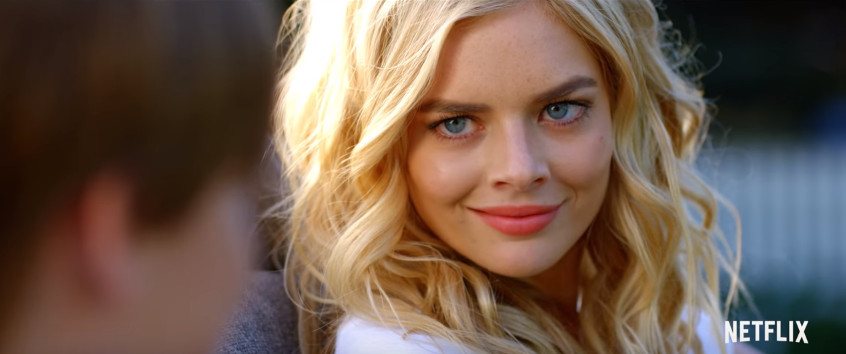
“And the same doggone thing with Judah.” Lewis, who came to prominence in Demolition playing opposite Jake Gyllenhaal, knocks it out of the park as Cole in THE BABYSITTER. “Here comes this kid that was exactly at the right window moment where a year ago he would’ve been a little boy, and the following year he’s going to be a young man. But right now, he’s at that moment where there’s nothing dirty about the way he admires Bee. It’s innocent, and it’s pure, and it’s wonderful. And next year, he would’ve been aware of the fact that he’s male, and she’s female, and we would’ve had a different dynamic. But this is all heart, and he seemed to embody that with an empathy. And he’s a very talented little actor. So we were just so lucky to land there.”
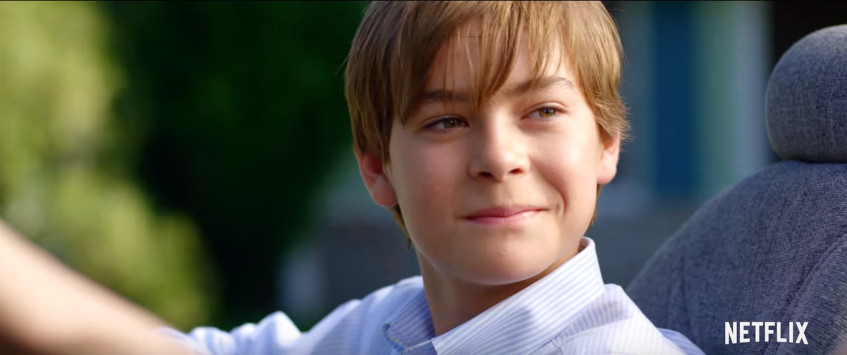
Rounding out the cast of THE BABYSITTER are veterans Ken Marino and Leslie Bibb as Cole’s over-protective parents, as well as Hana Mae Lee, Bella Thorne, Robbie Amell, Andrew Bachelor, and Doug Haley as Bee’s late night friends.

Were it not for the perfect casting and chemistry between Lewis and Weaving, however, the relationship between Bee and Cole would have failed. But instead, what we get thanks to Duffield’s script and McG’s direction is a trip back to gentler times where every boy had a crush on his babysitter. The manner of presentation within the film is sweet and sets the tone for what is to come between Bee and Cole. For McG, that was the ultimate goal. “The gore in the movie is meant to be kind of Grindhouse-y and funny. And I always cut to the characters informing how we feel. When bloods squirts out, you go to Andrew Bachelor’s character, and he does the screaming on your behalf as an audience member. And those things are fun. They’re nice little bells and whistles in the movie. [But] the goal of the movie is heart, and the love story, frankly, between Cole and Bee, which is honorable one. He believes in her entirely, and she never meant to do him wrong. And it’s just tragic with the way it worked out, but it’s for the best because he’s grown as a function of his time with her. I hope in the end there’s a sweetness and a bigheartedness there that traditionally doesn’t go with a movie with that much slapstick gore going on. I mean, you see elements of Mel Brooks in there, for goodness gracious sake!”
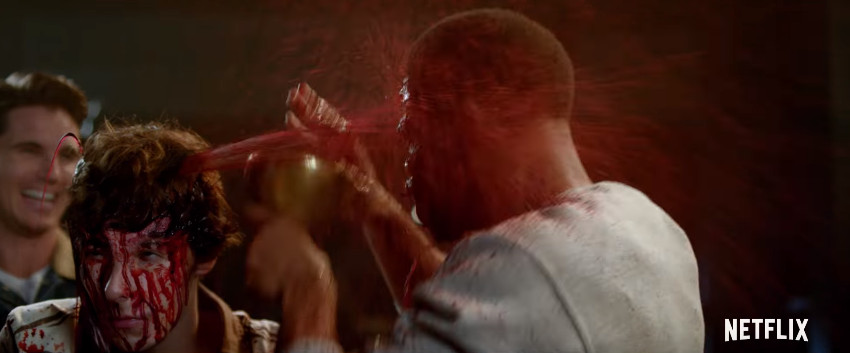
Talking about casting finds McG recalling his casting challenges and reinterpretations for Lethal Weapon and Charlie’s Angels. “It’s like, ‘How are we going to deal with replacing Danny Glover and Mel Gibson with these signature roles?’ And along comes Damon Wayans, at the right place at the right time in his career. And then we found this kid from Alabama, crazy Clayne Crawford, who just absolutely steals your heart and nails it. The highest compliment I could ever pay Clayne is people just focus on his version of the Riggs character. It’s a compliment how Cameron [Diaz], Lucy [Liu], and Drew [Barrymore] are as great as Farrah, Jaclyn and Kate were [in Charlie’s Angels]. You just kind of go, “Well, that was that Charlie’s Angels, and now there’s this Charlie’s Angels.” Of course, here comes Liz Banks, and I’m excited about what she’s going to do with it [directing Charlie’s Angels” for anticipated 2019 release]. It’ll be another great expression.”
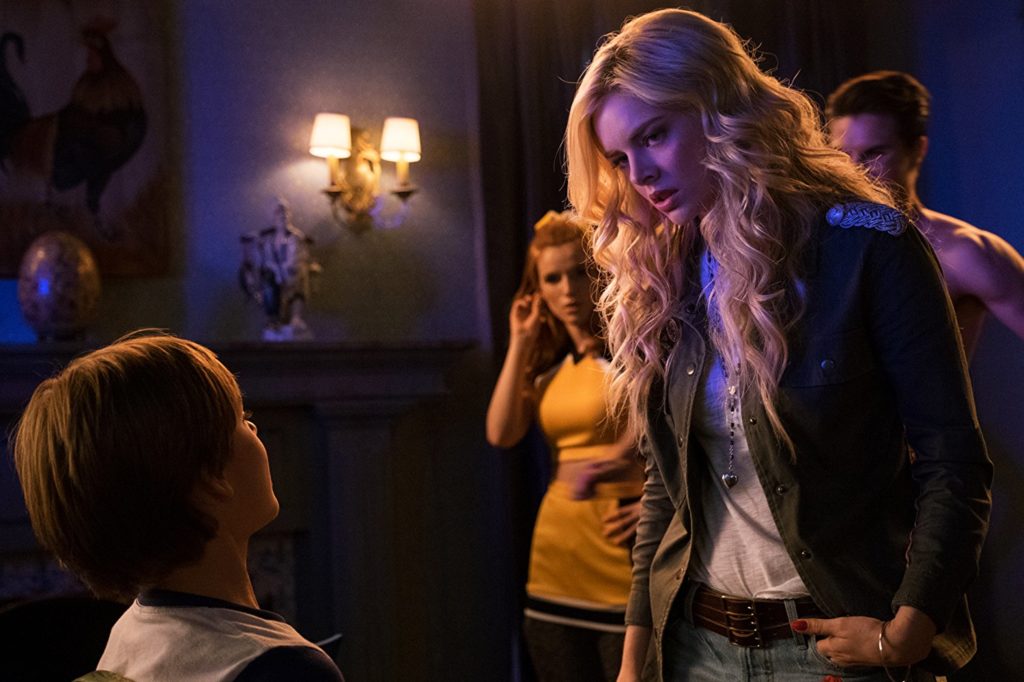
With everything on McG’s plate, one has to wonder where he gets the time to do it all. With an eclectic slate of television projects ongoing, which in addition to producing those shows McG is also directing some of the episodes, then there’s his film work. One project he is most excited about is I Feel Pretty starring Amy Schumer. As talk turns to I Feel Pretty, a film he describes as being “a cool movie about being comfortable in your own skin and finding power from within”, McG gushes over Schumer calling has a “very, very sweet performer. So she did a great job with that [role].”
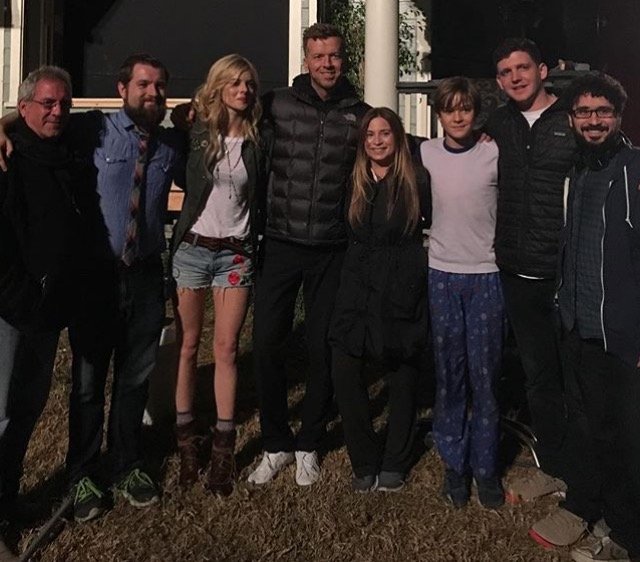
Ever humble, McG is grateful for the opportunity to continue creating in various mediums and his appreciation and admiration of those with whom he works is clear when he talks about his various casts and crews. So what’s his secret? “That’s back to being a fan. I just love it. This is what I do for fun. I watch a movie every night or I watch one of the great shows that’s currently airing. So it’s just fun for me. I really like it, and it really connects with me. I love storytelling. I love seeing what other people are up to. I just couldn’t love Ex Machina” anymore than I love it. I couldn’t love Drive anymore than I love it. I couldn’t love Trainwreck anymore than I love it. It’s fun and it’s also challenging. You want to be your best. And I want to be proud when and I speak on the phone with you, because as one film enthusiast to another, and one fan of great stories to another, you want to get it right. And it’s hard. You put everything you got into it.”
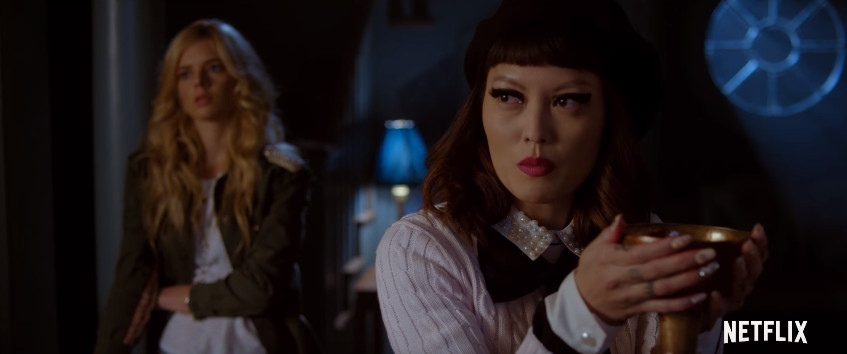
With THE BABYSITTER now available on Netflix and out in theatres and with some time to reflect on this filmmaking experience, McG is thoughtful as to lessons learned, starting with communication. “I think the importance of communicating with actors and creating a safe space for them to do their very best at all times [is number one]. And at the end of the day, it’s the actors, the performers, that has to break the plane, and get out there in front of the camera and do it. And if you’re not prepared and armed with a great script, and a great vision as to what you’re trying to achieve, they can’t deliver for you. So as long as you communicate and really, really get them in the best place possible — and do so without over-rehearsing it. A great old Steven Spielberg adage, ‘Don’t leave it in the rehearsal space.’ Sometimes if you rehearse it too hard, some of the magic goes out the window. You’ve got to get the actor exactly where he or she needs to be to deliver the performance at the right moment. . . .I really have to trust the actor and empower the actor to be great at that moment or that’s going to be downright embarrassing and awful.”

Attributing his affinity to what will hit with an audience to his own love of film, McG has a stable of influences like Mel Brooks, James Cameron, Hitchcock, Belgian Third Wave, Judd Apatow and Chris Nolan. Fans of McG may be surprised to learn that growing up he went “to the movie theater essentially seven days a week. There was this great art house where I grew up. I’d go see Spinal Tap” then I’d go see The Song Remains the Same and then I’d stay up all night and watch Rocky Horror. And I just grew up watching, listening to everything; Singin’ in the Rain and Busby Berkeley. If you look closely, you just see all those things. You go, ‘Oh, okay, that’s where that one came from!’ . . . I’m just a fan of so many storytellers. And the wonder of what Patty Jenkins just did! It’s all one big intake machine. You know what I mean? It just kind of goes in my eyes and in my ears, and it swims around, and it comes out the way it comes out. And I think you’re right — you see all of those influences, and how important music is to me, and how important photography is to me, and performance, and heart.”

But with all the success McG has had, and all of the projects he has conceived, helmed, and tackled, there is one genre that doesn’t speak as loudly to him. Darkness. “I love dark drama, but that’s the one thing that doesn’t seem to organically come out of me as a filmmaker. And who knows? Maybe I’ll try to tackle that later, but right now, I’m very happy to take these voices and try to put them together in a way that’s understandable and original, and tickles the audience, and brings out the fan in all of it.”












